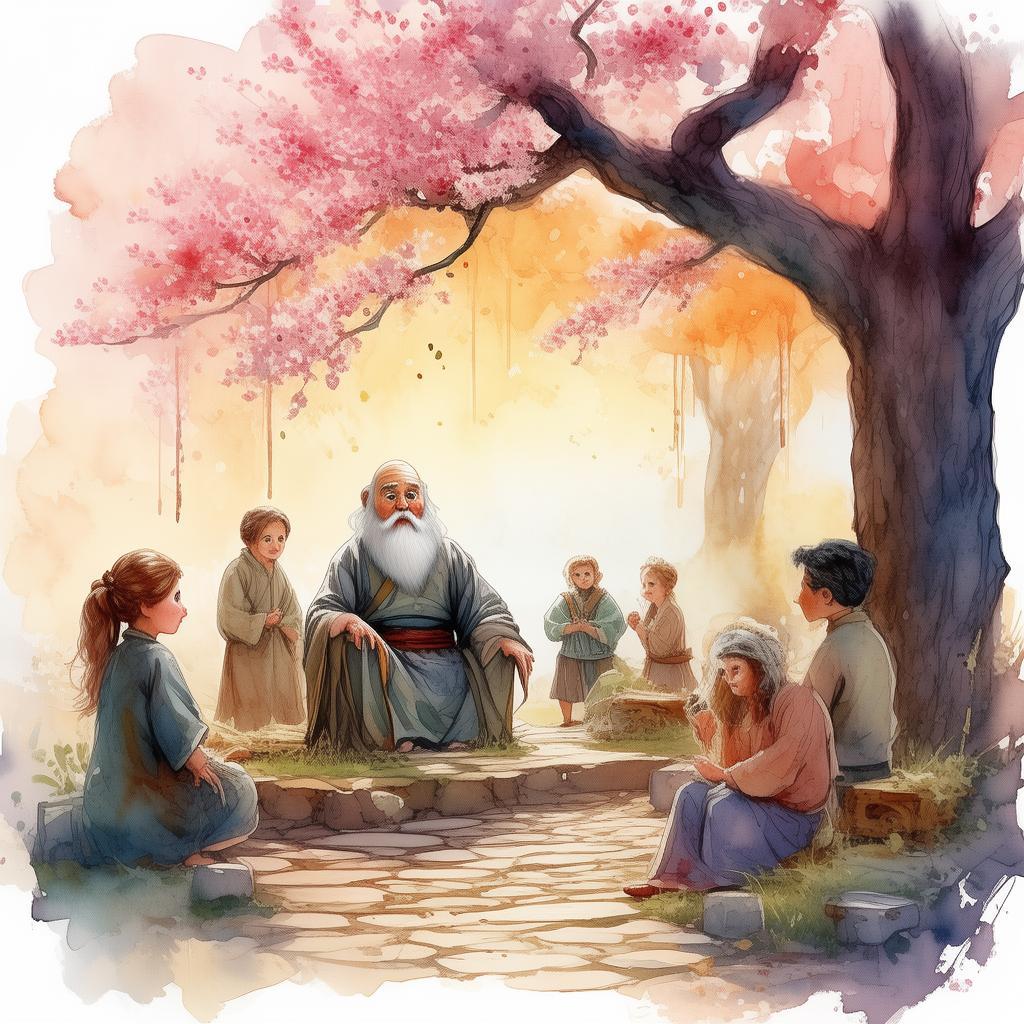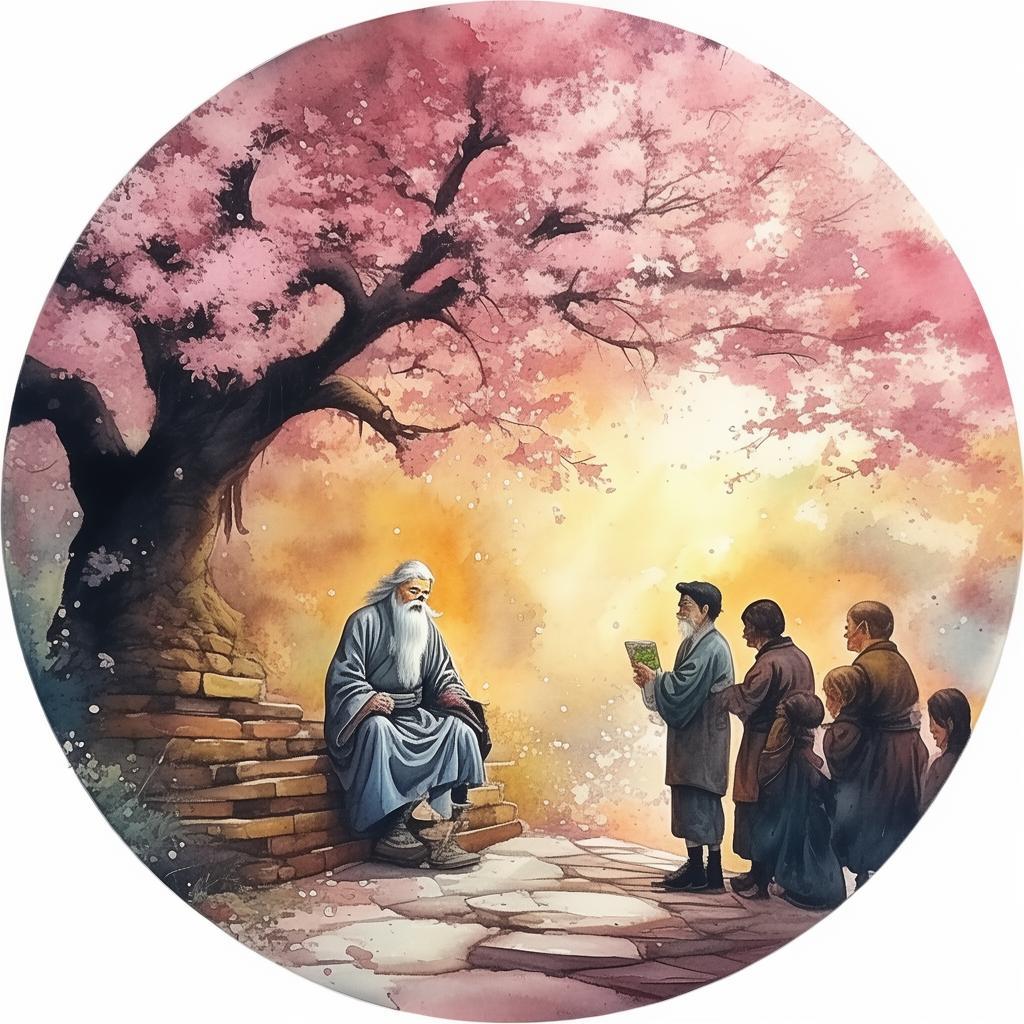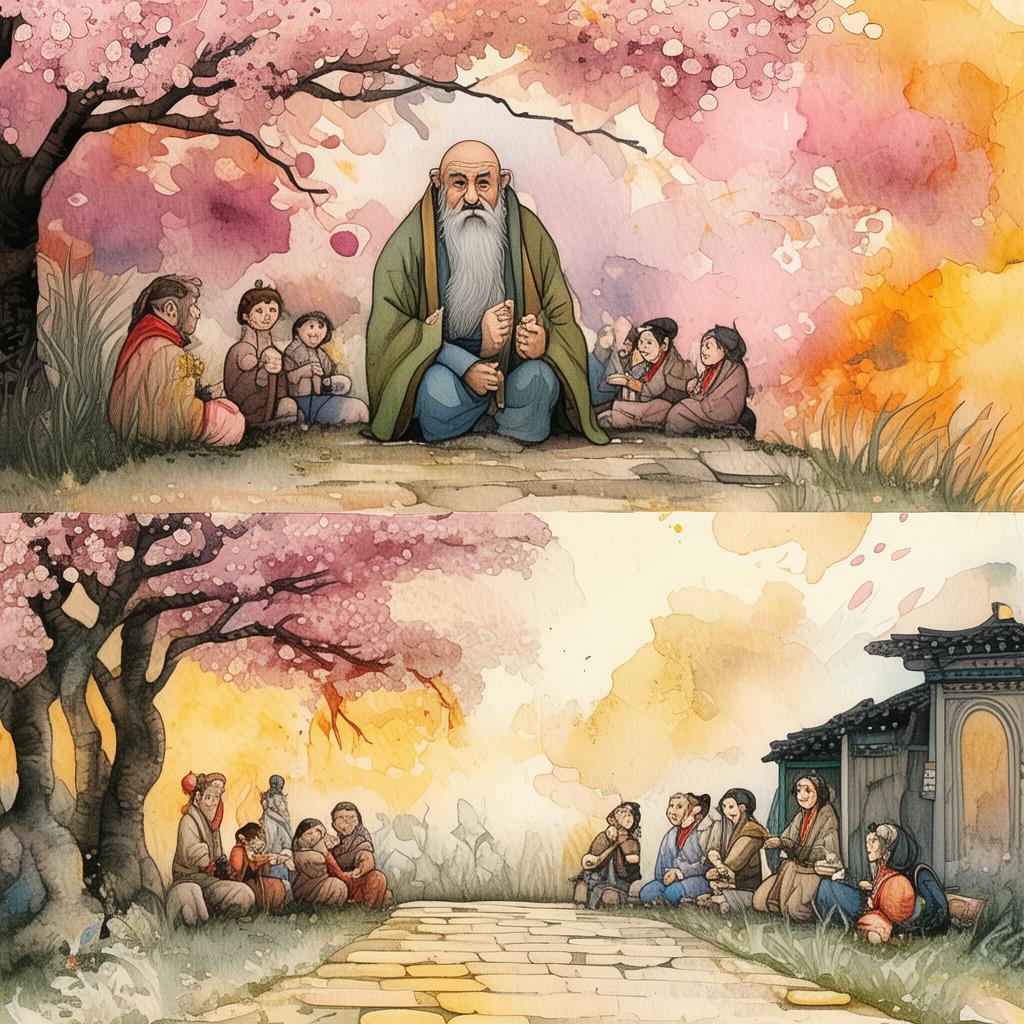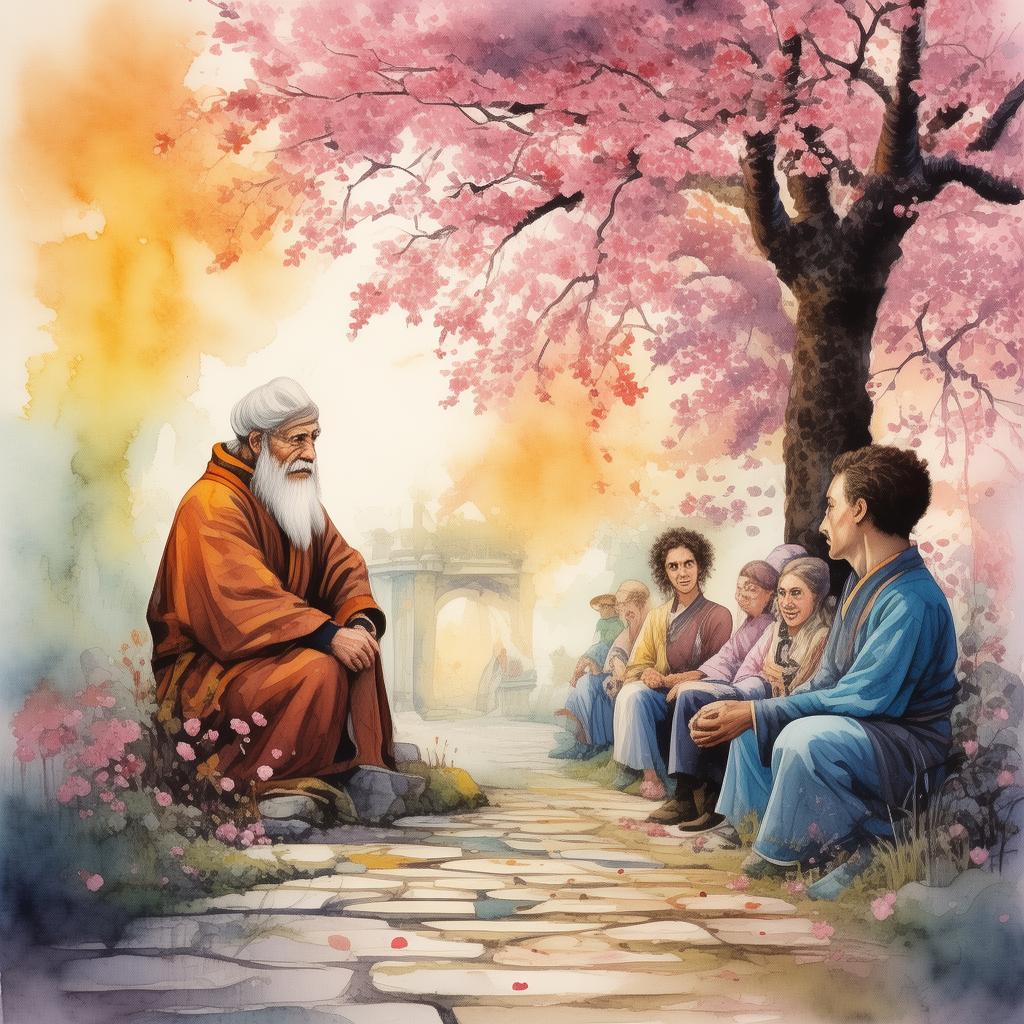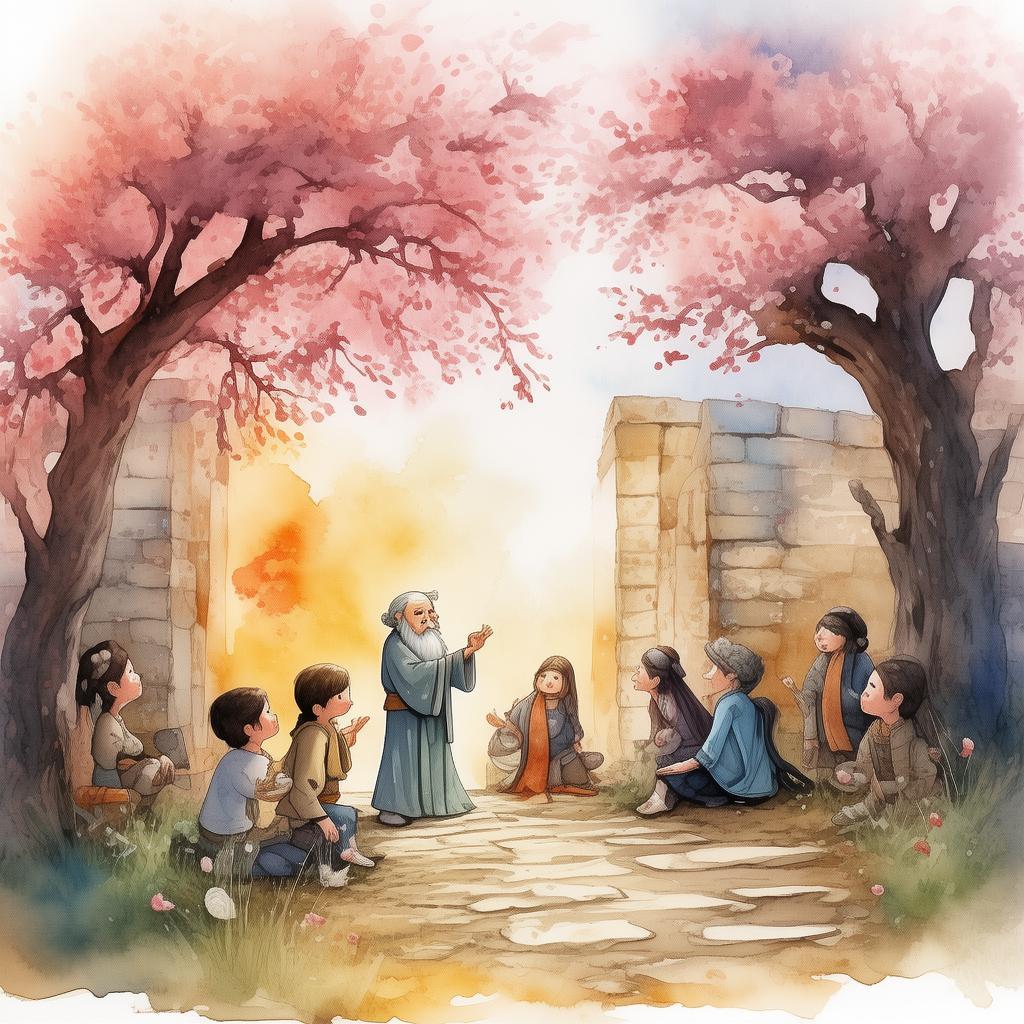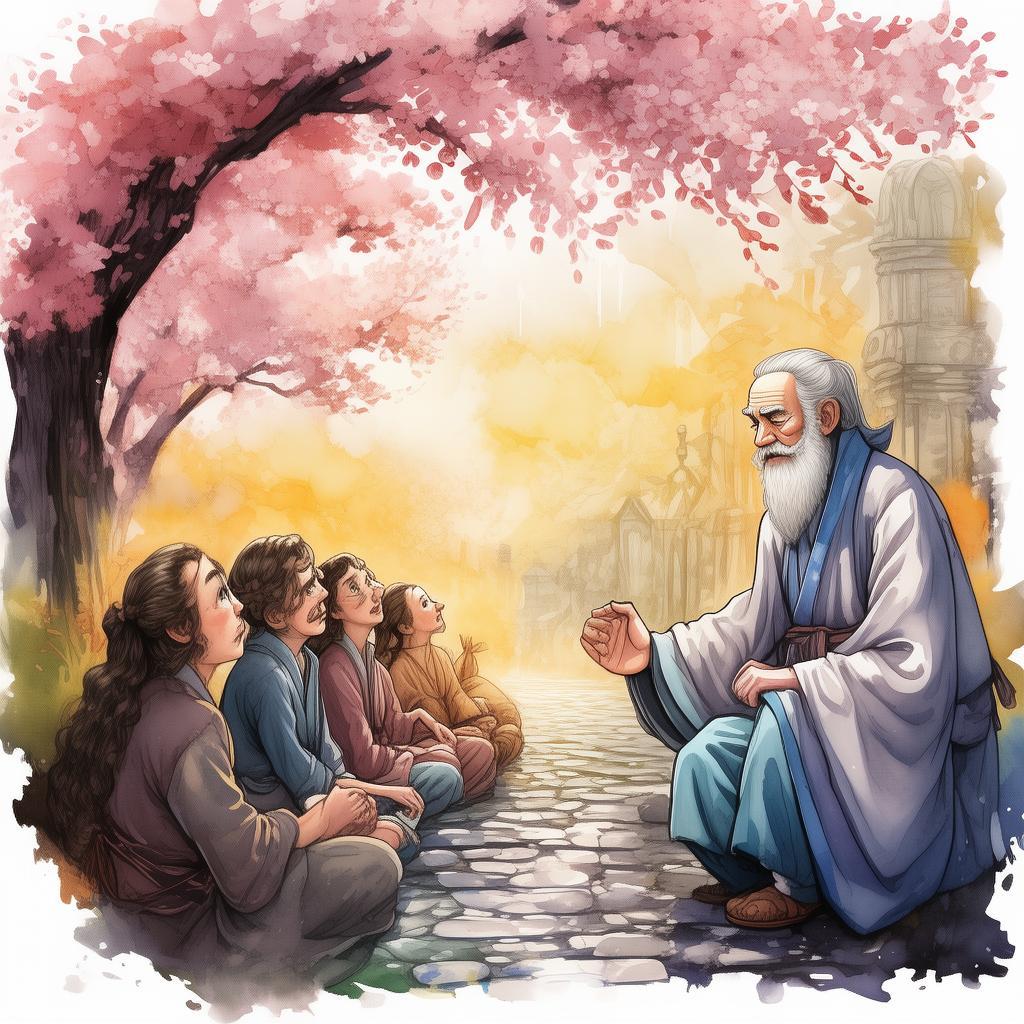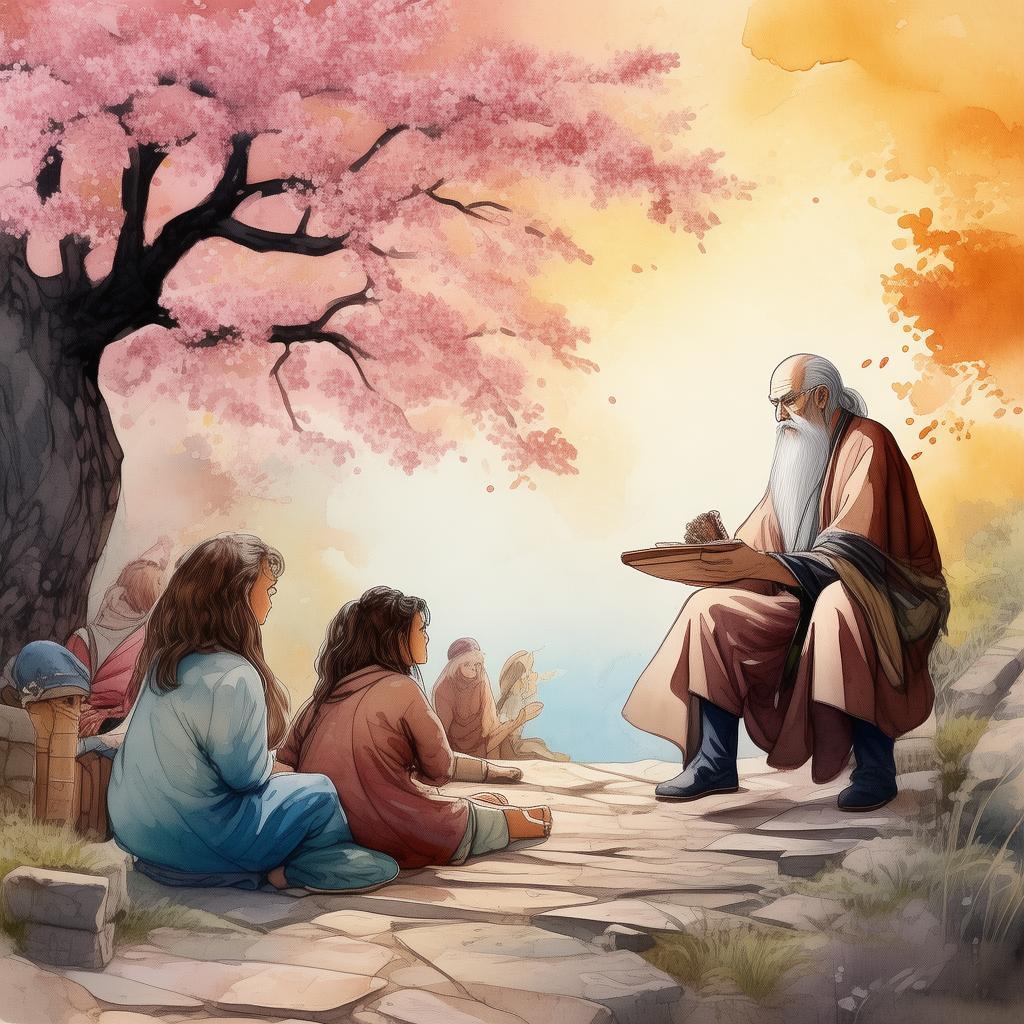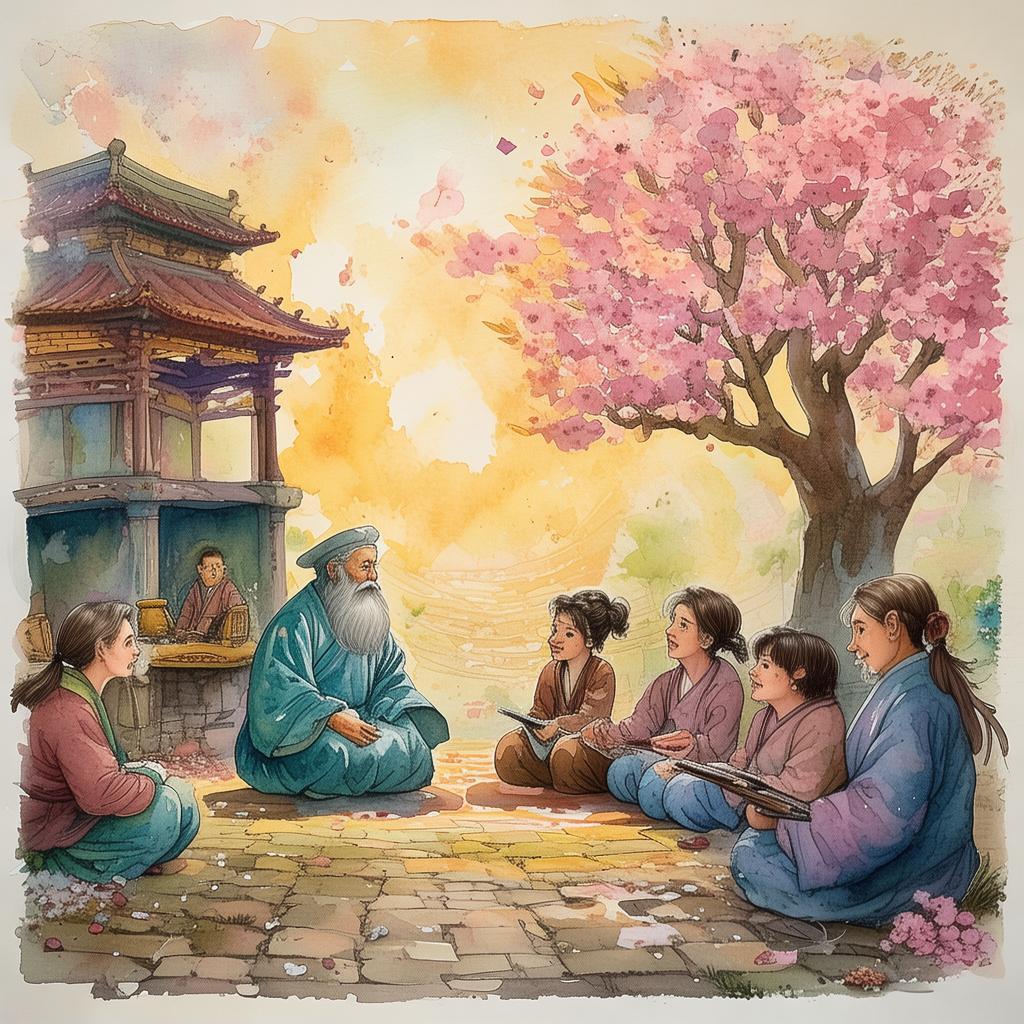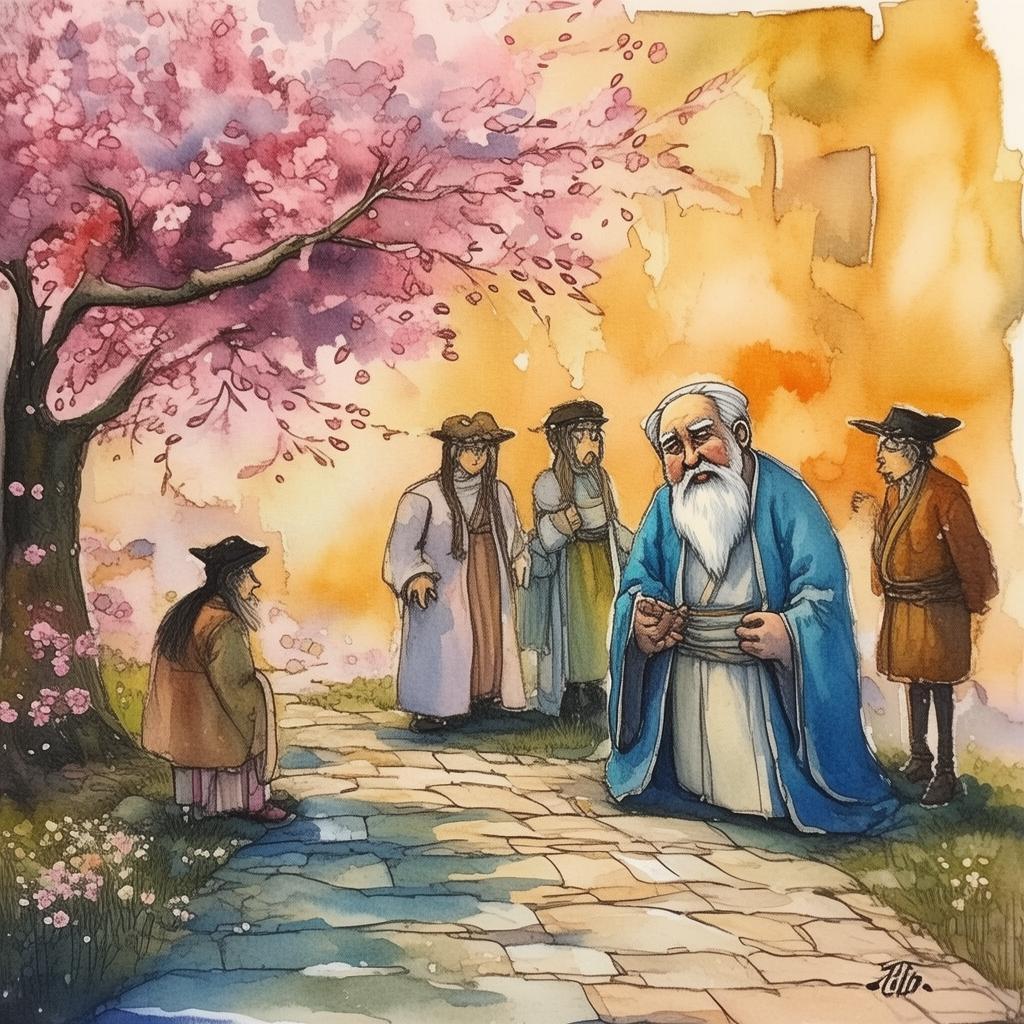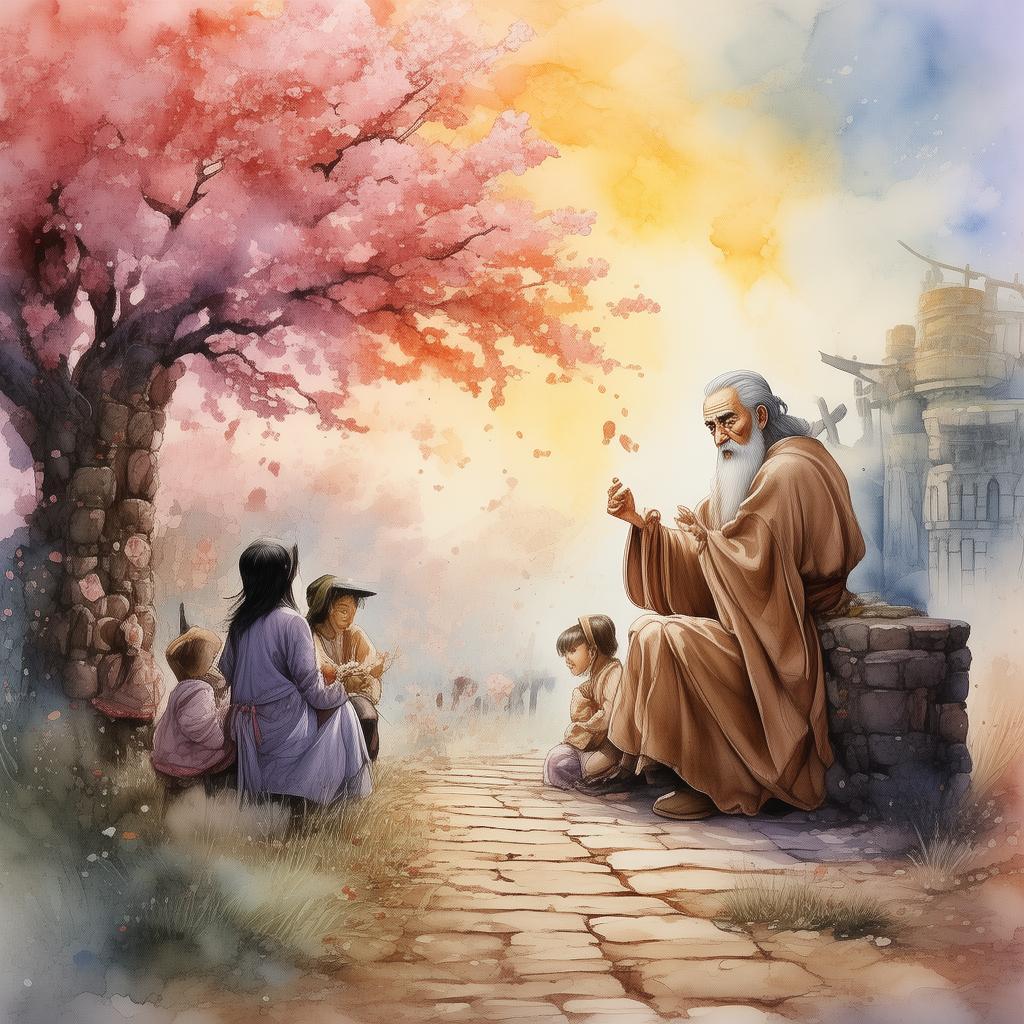The Enchanted Symphony of False Joy
In the heart of an ancient forest, nestled between towering oaks and whispering willows, there lived a young woman named Ling. She was a gifted musician, her melodies as delicate as the morning mist and as powerful as the stormy winds. Ling had always believed that music was the soul's voice, a universal language that could touch the deepest corners of the human heart.
One crisp autumn morning, as the leaves danced in a golden rain, Ling stumbled upon a hidden glade. In the center of the glade stood an old, ornate box. The box was covered in intricate carvings that seemed to tell a story of its own. Intrigued, she opened it to find a scroll within, upon which were inscribed the words, "The Enchanted Symphony of False Joy."
Curiosity piqued, Ling unwound the scroll and played the melody on her violin. The music was unlike anything she had ever heard—it was a symphony of pure, unadulterated joy. Each note seemed to carry with it a promise of happiness, a feeling that was impossible to resist. The music was so intoxicating that Ling found herself lost in its embrace, her worries and sorrows melting away like snowflakes in the sun.
Days turned into weeks as Ling became consumed by the symphony. She played it every morning, every evening, and even when she ate or slept. The music had become her life, her only source of comfort and solace. She was certain that the symphony was the key to true happiness, the answer to all her questions and the solution to all her problems.
One day, as Ling sat under the old oak tree, lost in the symphony, she noticed a figure standing in the distance. It was an old man with a long, white beard and piercing blue eyes. He approached her slowly, his steps as light as the wind.
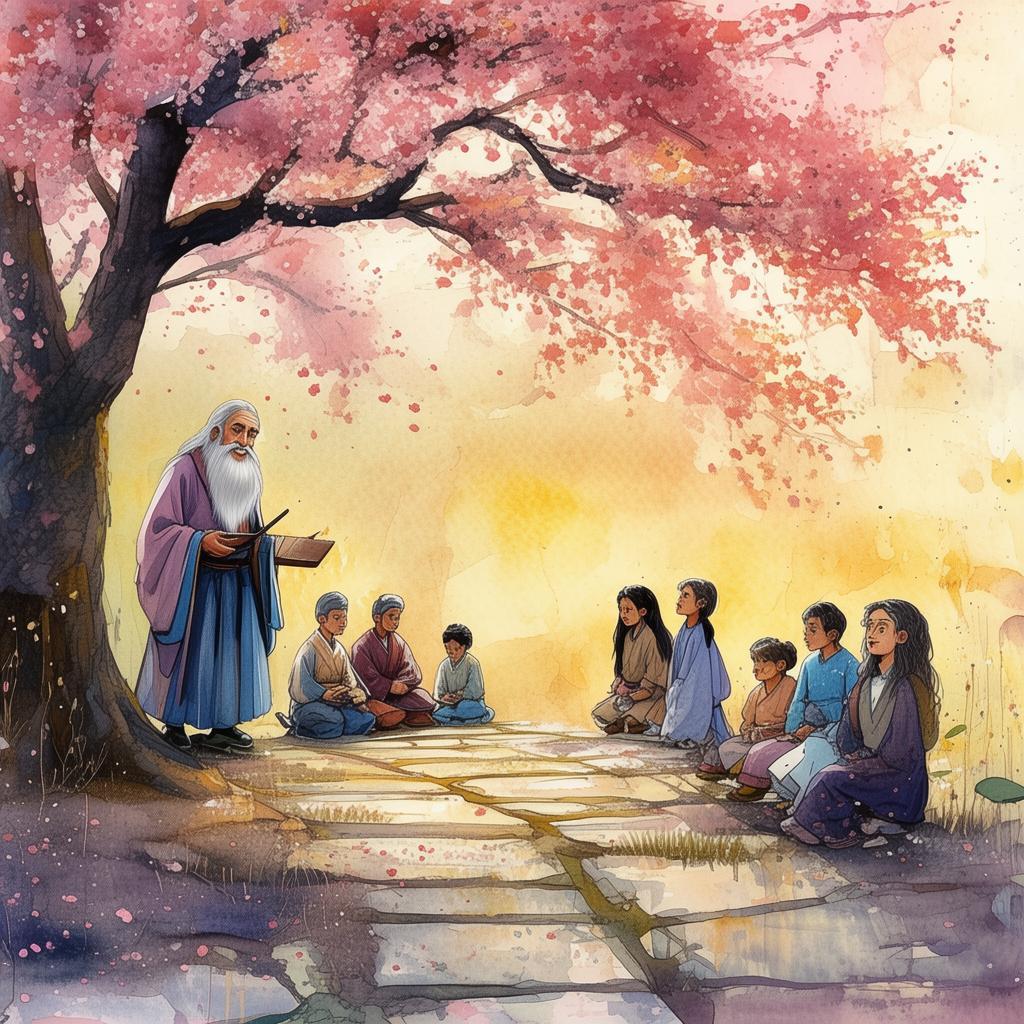
"Child," he said, his voice deep and resonant, "the music you play is enchanting, but it is also a dangerous illusion. The Enchanted Symphony of False Joy is a gift from the gods, but it comes with a price."
Ling looked up, startled. "What price, sir?"
"The price is your soul," the old man replied. "The symphony will bind you to it, and you will lose your ability to feel true joy and sorrow. It will become your prison, and you will be trapped within its walls forever."
Ling shuddered at the thought, but she was too ensnared by the music to let go. "I can't give it up," she whispered. "It's the only thing that makes me happy."
The old man sighed and reached into his cloak, pulling out a small, ornate box. "Then this is for you," he said, handing it to her. "It is the Key to True Harmony. It will unlock the symphony, but only if you are willing to face the truth within."
Ling took the key, her fingers trembling. She knew that the old man was right; she had to choose between the false joy of the symphony and the true essence of happiness. She had to face the music and decide what it truly meant to be happy.
With a deep breath, Ling played the symphony again, but this time, she held the key above the scroll. The music changed, becoming more complex and powerful. It was no longer a simple melody of joy; it was a symphony of life, a reflection of all the emotions that make up the human experience.
As the music reached its climax, Ling felt a surge of clarity. She realized that true happiness was not found in the symphony itself, but in the ability to feel all emotions—joy, sorrow, love, and loss. The symphony had been a gift, a tool to help her understand this truth.
With a newfound sense of purpose, Ling placed the scroll and the box back in the glade and returned to her village. She continued to play music, but now she played with a deeper understanding and a more profound connection to her audience. Her melodies were no longer just a source of joy; they were a reflection of the human experience, a reminder that life is a tapestry of emotions, woven together to create the beautiful tapestry of existence.
The Enchanted Symphony of False Joy had taught Ling a valuable lesson: that true joy comes not from external sources, but from within, from the ability to embrace and appreciate all the emotions that life has to offer. And so, she continued to play her violin, her music a testament to the power of truth and the beauty of emotional authenticity.
✨ Original Statement ✨
All articles published on this website (including but not limited to text, images, videos, and other content) are original or authorized for reposting and are protected by relevant laws. Without the explicit written permission of this website, no individual or organization may copy, modify, repost, or use the content for commercial purposes.
If you need to quote or cooperate, please contact this site for authorization. We reserve the right to pursue legal responsibility for any unauthorized use.
Hereby declared.
